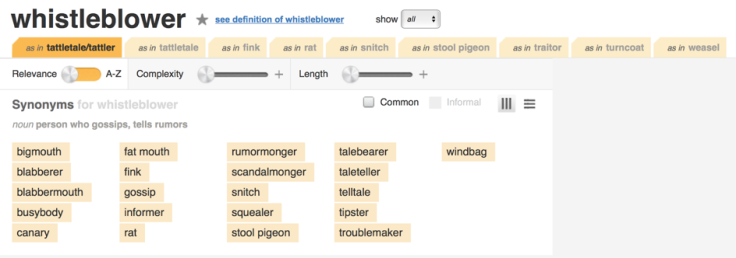“The word whistle-blower suggests that you’re a tattletale or that you’re somehow disloyal,” he says. “But I wasn’t disloyal in the least bit. People were dying. I was loyal to a higher order of ethical responsibility.” – Jeffrey Wigand
As a word deriving from the whistle a referee uses to indicate an illegal or foul play, a whistleblower tends to have a much more negative connotation nowadays. On one side, some part of the society associates a selfless martyr with whistleblowers who act in the public’s interest and, in contrast, for the main part of the society, it means the treason of common moral values like confidentiality, privacy and institutional silence. But what happens if other values such as equality, justice and freedom of information are affected? A whistleblower sits on the fence between sacrifice and victim.
Ireland’s bluster
Shouldn’t a whistleblower be treated with consideration? Someone who endured a lot of pain and will continue to suffer to protect the society from injustice and illegal or “hurting” actions would not do this without any reason. Being in a dilemma of a common secrecy in the working sector and a guilty conscience can drive people mad. However, as in the case of the whistleblower in Ireland, a person decided to stand up against the pressure and oppression to hide something wrong. The loyalty to his employer was hit as soon as it became biased and enrichment was only present for the Gardaí. Loyalty should always comprise mutual enrichment. The case of the whistleblower McCabe not only gives implication about the accountability of the government, it also reveals what may be hidden in Irish institutions for several years. The Gardaí standing for trust, loyalty and protection have breached their promise to the society but someone else became the scapegoat for their behaviour.
The psychological impact is immense. No one will risk the deterioration of health and damaged reputation if the reason is not important enough. Whistleblowing does not only mean physical or professional harm, people lose their faith in their sense of people acting in the best interest of the public and not their own. Ethics play a significant role. Here is the split of whistleblowers who act because of personal glory and on the other side, the ones that really want a change and and act towards public benefits in the future.
Let’s look at the example of Edward Snowden. Widely discussed, it depicts that we need to question our privacy and what public space stands for. A whole nation’s security has been in the hands of one man who chose to blow the whistle and release classified intelligence. We were able to have a look behind the government’s workings with a shocking result. But even more devastating is that people like Snowden or Julian Assange have to go into exile to escape harsh consequences.
“Traitor”
Do we need to live in an “enlightened” country such as Australia where whistle blowing does not represent something forbidden? Not necessarily. In order to make this progress, every country can implement a better protection. The press and social media are significant here. Every whistleblower could be the next headline or trending tweet for them. Anonymity is not possible in this context. Who would want to go public when being completely picked to pieces afterwards?

Searching for synonyms of “whistleblower” fits into an even more devastating picture: “bigmouth”, “taleteller”, “traitor” and “windbag”. You can tell how much the importance of conformity is favoured over the independence of an individual. This cries out for a revolution. We preach critical thinking every day to young people to teach them how and why they should question their environment to realize what happens around them. At the same time, many debates about whistleblowers could discourage them from entering controversial fields because they experience an immediate retaliation. Who tells them how to act in the right way? We can identify three problems with whistleblowers: how can we define this expression without even admitting that they are acceptable, when is it even permissible, when should we call attention to something and should we do it all?
– Louisa
Image labelled for reuse and free of rights.

Leave a comment